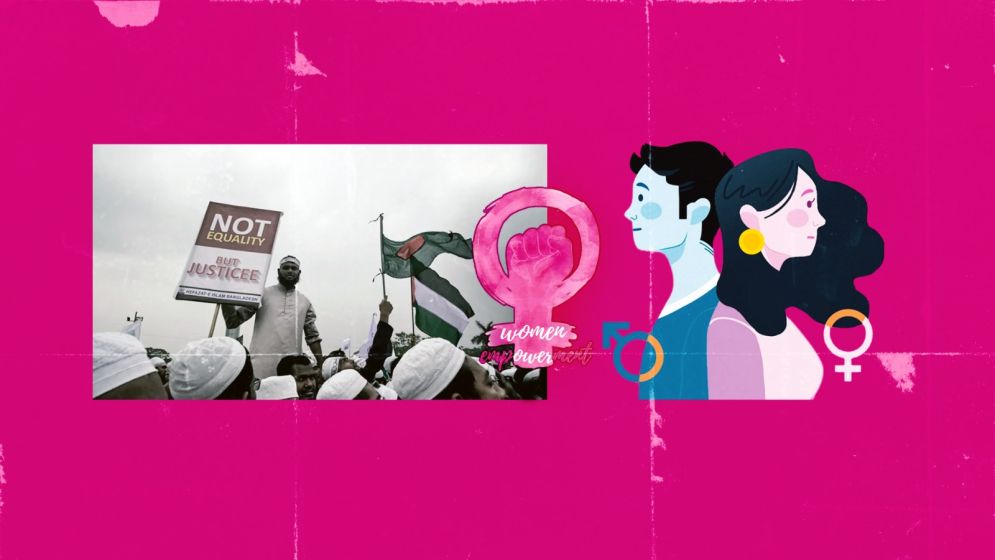The Women’s Commission missed a critical constituency

The uproar from conservative Islamic clerics over the proposed women’s policy reform may be unsettling—but it’s also illuminating.
These reactions aren’t coming from the fringes. They reflect a worldview held by millions of women in this country, women whose faith is not a fringe identity but a foundational one.
We can’t wish that away. And we shouldn’t try.
Here’s the uncomfortable truth: The reform proposals and process were driven almost entirely by secular, progressive voices—many of them urban, elite, and disconnected from the religious mainstream.
In a nation where so many women live lives shaped by tradition and faith, how meaningful can reform be if those women weren’t even invited to the table?
This isn’t a call to pander to regressive forces. It’s a demand for intellectual honesty.
Empowerment is not one-size-fits-all. If a woman chooses to challenge patriarchy, pursue education, or fight for legal parity, she must be supported.
But if another woman draws strength from her faith, chooses to wear hijab, or even embraces the role of a maharam in her life, that too is a legitimate expression of autonomy.
We cannot build an inclusive future by erasing the present realities of the majority. Real reform listens before it legislates. It doesn’t dismiss dissent as backwardness. It wrestles with it, accommodates it where possible, and persuades where necessary.
The goal of policy should not be cultural conquest. It should be pluralism.
And that means making space for rural and urban women, liberal and religious, all at once—not just in rhetoric, but in the drafting rooms of power.

Progress without
erasure
Consider Malaysia—a Muslim-majority nation where Sharia courts exist alongside civil ones, not in conflict, but in coexistence.
Rather than scrubbing religion from the public sphere, Malaysia integrates it. The state supports Islamic family counseling centers, issues microloans to female entrepreneurs, and offers tax breaks to companies that hire women.
The result? A society where women aren’t forced to choose between faith and ambition.
They move between professional, domestic, and religious spheres on their own terms—without stigma, without shame.
Look next to Indonesia, the world’s largest Muslim democracy. There, girls study at pesantren—Islamic boarding schools—where Quranic education lives side-by-side with science, mathematics, and civics.
The aim isn’t to secularize faith, but to modernize its context.
Indonesia has elected a female president, fields women in the military, and boasts hijab-wearing CEOs—none of whom had to renounce their religiosity to lead.
Even Morocco offers a compelling blueprint. In 2004, during the landmark Moudawana reforms, the Moroccan monarchy didn’t sideline religious scholars—it invited them in.
Together with women’s rights advocates, they reimagined family law: curbing polygamy, raising the legal marriage age, and empowering women in divorce and custody cases.
Reform didn’t mean rejection of religion. It meant dialogue, compromise, and a framework that felt both modern and morally grounded.

Respect first, reform
that lasts
If Bangladesh truly seeks progress, it must stop confusing imposition with empowerment.
Real reform isn’t about shaming women into a narrow model of modernity. It’s about building systems that expand choice.
Want to transform society? Start with scholarships for rural girls. Create safe, dignified workplaces. Offer real economic incentives to organizations that invest in women. Let results—not rhetoric—do the convincing.
Women don’t need to be rescued from their religion. They need the tools, support, and respect to define success on their own terms.
Because here’s the political reality reformers often ignore: when people feel threatened, they resist—even when the change is meant for their benefit.
But when their beliefs are respected, when their convictions aren’t dismissed as backward or irrelevant, they don’t retreat. They listen. They engage. And yes, they evolve.
The aim of policy should never be to make conservative women feel obsolete, or liberal women feel enlightened by comparison. This isn’t a zero-sum game of ideological dominance.
The goal must be broader and more democratic: to ensure that all women—faithful or feminist, rural or urban—feel heard, valued, and at home in their own country.
Because true empowerment doesn’t come from coercion. It starts with consent. It thrives on choice—not conformity.
—
Arif Hafiz is a political analyst, cultural critic, and independent columnist.

